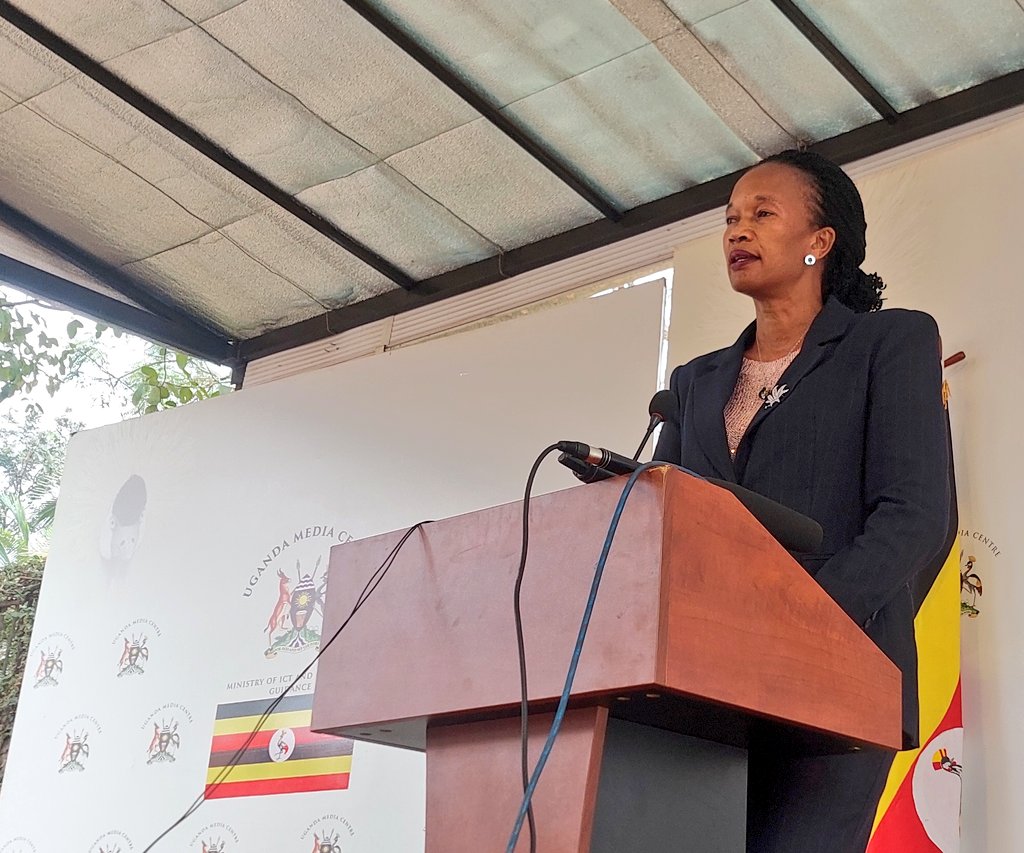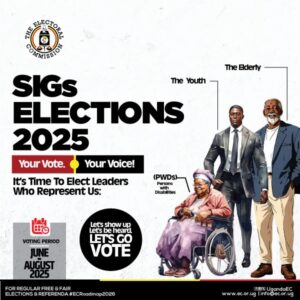By Our Reporter
KAMPALA, Uganda — The Ministry of Gender, Labour and Social Development detailed the electoral process for workers’ representatives to Parliament and district councils during a press conference Tuesday.

Anyakun Esther Davinia, the state minister for labor, employment and industrial relations, announced that conferences for non-unionized workers are scheduled for Wednesday to allow the Electoral Commission to organize and manage elections at the sub-county, city, municipality, and town council levels.
According to Davinia, the elections are governed by the Parliamentary Elections Act and the Local Governments Act. The laws outline the composition of the electoral college for the five parliamentary seats and two district council seats for workers. The electoral college includes delegates from registered labor unions, as well as delegates nominated by non-unionized workers from across four regions: Central, Eastern, Northern and Western.
Davinia stated that a registered labor union must meet several conditions to submit its list of nominated delegates. Unions must have been registered for at least six months, have proof of conducting annual general meetings for the past three years, and have submitted annual returns to the Registrar of Labour Unions for the same period. Union leaders must also be registered officials with the registrar.
Eligibility for nomination as a union member requires being a Ugandan citizen at least 18 years old, holding a national ID card, and being a registered voter. Nominees must also be employed with a verifiable contract and have salary pay slips and union subscription records for the five months prior to nomination.
For non-unionized workers, the eligibility criteria include being a Ugandan citizen at least 18 years old, having a national ID and being a registered voter. They must be employed with a verifiable contract, have a valid employment ID card, and show proof of payment records for at least three months preceding registration. They must also not be a member of a registered labor union.
Davinia noted that the ministry has developed comprehensive guidelines to support the Electoral Commission in creating a workers’ register and to guide public officers in the verification process. The information has been published in print and digital media to ensure public access to details on legal frameworks and eligibility requirements.
The minister called upon all eligible workers, unions, employers, and local authorities to actively participate in the process. She urged willing non-unionized workers to register at their local sub-county, city, or town council offices.
“It is the expectation of Government that all stakeholders will adhere to these provisions,” Davinia said, “thereby ensuring that the election of Workers’ Representatives reflects the aspirations of the labour force and contributes meaningfully to Uganda’s development agenda.”






